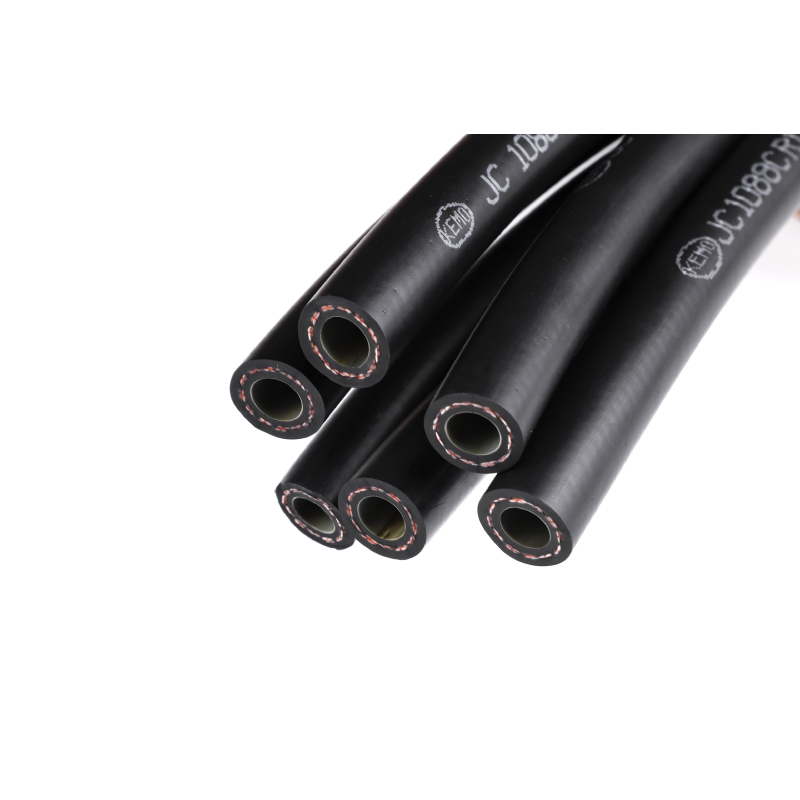Durable Rubber Oil Hose for Efficient Fluid Transport and Resistance to Extreme Conditions
Nov . 10, 2024 21:19 Back to list
Durable Rubber Oil Hose for Efficient Fluid Transport and Resistance to Extreme Conditions
The Versatility and Importance of Rubber Oil Hoses
Rubber oil hoses play a crucial role in various industrial applications, particularly in the transportation and handling of oil and petroleum products. These hoses are specifically designed to withstand the harsh conditions and demands of the oil and gas industry, making them indispensable tools for operators and engineers alike. In this article, we will explore the construction, types, applications, and benefits of rubber oil hoses, highlighting their significance in modern industry.
Construction of Rubber Oil Hoses
Rubber oil hoses are engineered with layers of reinforced materials that provide durability, flexibility, and resistance to corrosive substances. The inner tube is typically composed of synthetic rubber that offers excellent oil resistance, ensuring that the hose can transport petroleum products safely without degradation. Surrounding the inner tube, there are reinforcement layers, usually made of textile or steel wires, that enhance the hose's strength and prevent kinking or bursting under pressure. The outer layer is crafted from weather-resistant rubber compounds that protect the hose from environmental elements and abrasion.
Types of Rubber Oil Hoses
Rubber oil hoses come in various types, each designed for specific applications
1. Fuel Hoses Designed for the safe transfer of fuel, these hoses are typically utilized in automotive and aviation industries. They are constructed to handle gasoline, diesel, and biofuels without compromising their integrity.
2. Oil Transfer Hoses Used primarily in industrial settings, oil transfer hoses facilitate the movement of crude oil, lubricating oils, and other petroleum products. They are essential in refineries, storage facilities, and transportation.
3. Suction Hoses These hoses are designed to work under negative pressure, allowing for the suction of oil and other liquids. They are often utilized in applications such as vacuum trucks and oil recovery operations.
4. Chemical Resistant Hoses For specialized applications involving aggressive chemicals and solvents, these hoses are reinforced with additional materials to ensure safety and functionality.
Applications of Rubber Oil Hoses
rubber oil hose

The applications of rubber oil hoses are vast and varied, making them essential components across numerous sectors
. In the automotive industry, they are vital for fuel delivery and management systems, ensuring vehicles operate efficiently. In industrial settings, rubber oil hoses are used for transferring oil in manufacturing processes, maintenance operations, and equipment servicing.Furthermore, rubber oil hoses are critical in the marine industry for transferring fuel and lubricants to boats and ships. Their ability to withstand harsh marine environments while providing secure fluid transfer makes them a preferred choice for these applications.
Benefits of Rubber Oil Hoses
The use of rubber oil hoses brings several advantages
1. Durability Designed to withstand harsh conditions, rubber oil hoses can endure high pressures, extreme temperatures, and corrosive environments, leading to longer service life and lower replacement costs.
2. Flexibility These hoses maintain their flexibility even in cold conditions, allowing for easy handling and installation in various configurations and tight spaces.
3. Safety Rubber oil hoses are designed to prevent leaks and spills, which can pose significant safety hazards and environmental concerns. Their robust construction minimizes the risks associated with transporting flammable or corrosive materials.
4. Cost-Effectiveness By reducing maintenance and replacement needs while enhancing operational efficiency, rubber oil hoses can lead to significant cost savings for businesses.
5. Wide Compatibility Available in different sizes and configurations, rubber oil hoses can be easily integrated into existing systems, making them a versatile choice for various applications.
Conclusion
In conclusion, rubber oil hoses are a vital component in the landscape of modern industry, particularly in the transportation and management of petroleum products. Their sturdy construction, versatility, and safety features make them indispensable in automotive, industrial, marine, and many other applications. As technology advances and the demands for efficiency increase, the importance of reliable rubber oil hoses will continue to grow, solidifying their position as a key tool in fluid management systems. Investing in high-quality rubber oil hoses is paramount for any operation involved in the handling of oils and fuels, ensuring safety, efficiency, and long-term value.
